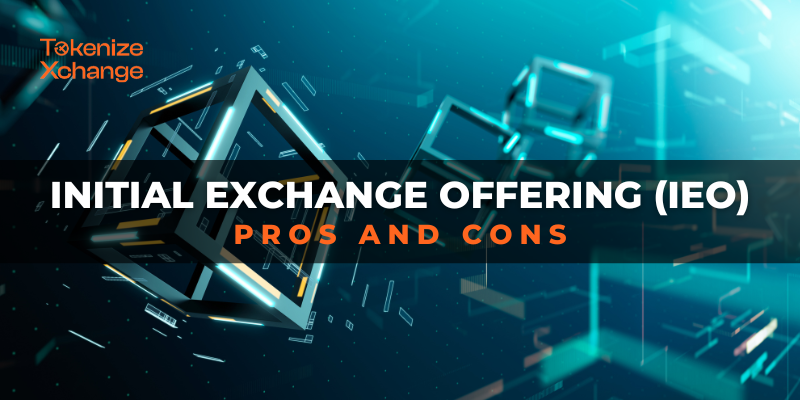
The pros of IEOs are:
- Exchange Validation: IEOs undergo a due diligence process conducted by the cryptocurrency exchange hosting the offering. This helps filter out potentially fraudulent or low-quality projects, providing investors with a certain level of assurance and reducing the risk of scams.
- Access to Exchange User Base: IEOs leverage the existing user base and community of the hosting exchange. This can provide increased visibility and exposure to a wide pool of potential investors who are already active on the exchange.
- Technical Support and Infrastructure: Cryptocurrency exchanges typically provide technical support and infrastructure for token sales. This includes handling token issuance, distribution, and investor verification processes. The exchange’s expertise can simplify the token sale process for project teams.
- Liquidity: Upon completion of an IEO, the project’s tokens are usually listed on the hosting exchange. This immediate listing can potentially provide liquidity for token holders, allowing them to trade their tokens on the exchange without the need to wait for a separate listing process.
- Investor Protection: IEOs conducted on reputable exchanges can offer investors certain protections, such as compliance with KYC/AML regulations, enhanced security measures, and dispute resolution mechanisms. These safeguards help create a more secure investment environment compared to some other fundraising methods.
Cons of IEOs are:
- Limited Availability: IEOs are only accessible to users of the hosting exchange. This can restrict participation for investors who are not registered or eligible to use the specific exchange, potentially limiting the pool of potential investors.
- Centralization: While IEOs may offer benefits in terms of exchange validation, they also centralize the token sale process. This concentration of power in the hands of exchanges contradicts the decentralized nature of blockchain technology and may raise concerns about transparency and control.
- Regulatory Uncertainty: The regulatory landscape for IEOs is still evolving and differs across jurisdictions. Compliance with applicable regulations is essential, and projects and investors need to consider the legal implications and potential risks associated with IEOs in different jurisdictions.
- Limited Influence on Token Sale Terms: With an IEO, the exchange typically has a significant say in determining the terms and conditions of the token sale. Project teams may have limited control over factors such as token pricing, allocation, and sale structure.
- Market Dependency: The success of an IEO is influenced by the market conditions prevailing at the time of the offering. If the cryptocurrency market is experiencing a downturn or if investor sentiment is unfavorable, it may impact the outcome of the IEO and subsequent token trading.
Before engaging in an IEO, it is important for both project teams and investors to do their own research, understand and assess their needs and circumstances, and weigh on the pros and cons.